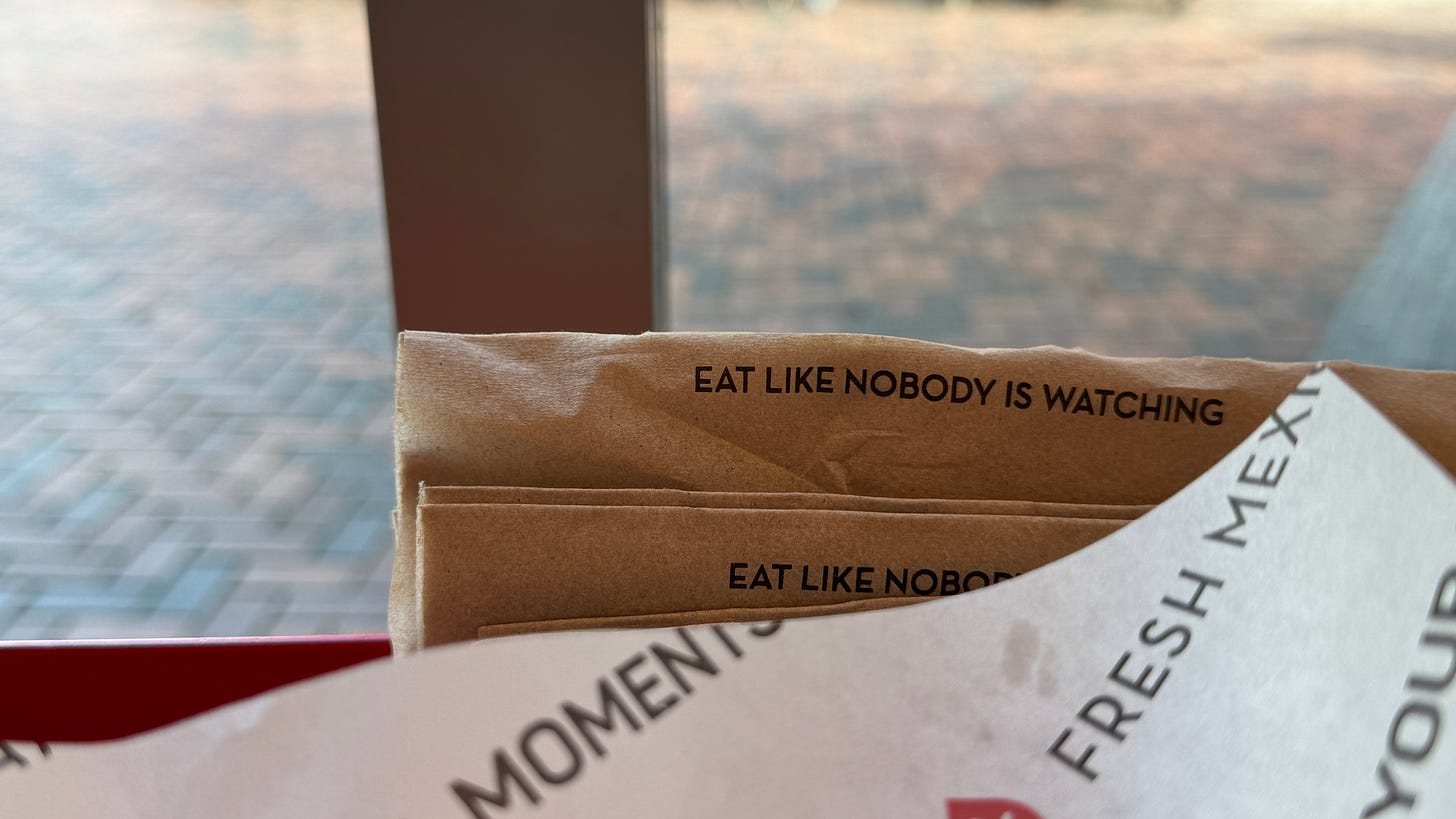Re: “Bad” Strategy
Strategy is people, and in a corporate setting, all the wonky parts of people are amplified. In the places I’ve worked, the lower down you go in the organization, the less relevant strategy is. What’s relevant is the actions you can take, not the outcomes the executes are going for with their strategy, let alone anything resembling a classic big-S Strategy.
Besides, unless you have a huge chunk of equity, you get paid the same no matter the outcome. Long-term you’ll suffer if the company goes out of business, sure, but short and medium term, you’ll just keep chugging along. Thus, for most workers, if the stated strategy doesn’t direct what actions to take (and not take!), it’s not very useful.
This also applies to OKRs. What’s missing from OKRs are the actions it takes to get from the O to the KR. This annoys me to no end. And, yeah, I read that OKR book a few years ago. You can’t set an objective and a realistic key result if you haven’t imagined the actions you’ll take to get there. Executives build the system that everyone works on, and just like an enterprise architect that no longer codes, if the executive has no idea, or even second hand experience of how the work is done, it’s hard to imagine what needs to be done to reach the KR. This means the KR is what they hope will happen, not what’s happen-able. To hedge: sure, I bet there’s just fine OKRs, but it’s too easy for people to mess them up.
Doing strategy in large companies is very difficult. One of the huge advantages of startups is that they can do MVP/lean strategy, if any at all. Big organizations often don’t - can’t - test and validate strategy content and adjust it every quarter or two to match what customers actually want.
Anyway, this is why the context and thinking around strategy is more important then the 25 to 30 words of the actual strategy. Fitting corporate strategy on a slide is a good start, but then outlining how it’ll be done is what really matters.
(Provoked from this good piece.)

Relevant to your interests
Cognizant Predicts GenAI Will Inject $1 Trillion Into the U.S. Economy - Seems like a lot of money.
Corn - “I've just had what feels like the hundred billionth reader inform me that, with all due respect, Hild is quite wrong to talk about corn in 7th-century Britain. And for the hundred billionth time I've politely responded that, actually, no, there's no mistake. To Hild, corn is wheat, not maize.”
IT leaders dial back cloud-first strategies as hybrid IT becomes more of an investment priority - People interested in lowering costs, on-premises and public cloud. I mean, who’s ever like “nope, I’m fine spending more when I could be spending less.” // “over a third of the study’s EMEA participants (36%) are taking a cloud-first approach to new application deployments, which is slightly down on a similar study carried out by TechTarget in 2023. Back then, around half of the participants indicated that their organisation was favouring a cloud-first approach when choosing the best environment to deploy new applications and workloads.”
Oh hey, check this out: With Tanzu CloudHealth, “[b]y enabling the [South African FSI Discover] to streamline its expenses and resources, the solution helped Discovery realize a 40 percent reduction in costs in less than a year’s time.”
AI startups require new strategies: This time it’s actually different - Good stuff.
Pairing and interviewing at Pivotal - People seemed to like this. Of course, there was survived bias: the only people who talked about it had gotten the job. Still!
Codefresh and Octopus: GitOps, K8s and VMs Under One Roof - The “greenfield aasumption”…I like that! // ‘“The ‘greenfield assumption’ has broken and is still breaking a lot of advanced DevOps software implementations by failing to accommodate the complexities of real-life environments,” Torsten Volk, an analyst for Enterprise Management Associates (EMA), told The New Stack. “The vast majority of enterprises still have, and will have for many years, messy and heterogeneous environments that somehow need to be made part of CI/CD and GitOps.”’
Speaking of, an example of the greenfield assumption anti-pattern in action: “A widespread local presence and deep roots in the community have given Germany’s savings banks a high standing since they were founded around 200 years ago: Tradition breeds trust. However, traditional financial institutions today find themselves confronted by growing competition – not to mention the need to design more customer-oriented offerings. FinTechs, for example, start ‘from the green field,’ do not bring legacy mountains of data with them and offer customer-oriented services quickly and efficiently.”
4 Engineering Slides CEOs Love - There’s a good mix of “business value” and inward facing technical activities and health-checks.
Michael Joseph Lost and Found - Modern day hitchhikers and train hoppers.
Is GenAI’s Impact on Productivity Overblown? - Generative AI hasn’t been around long enough to figure out what to do with it, especially in enterprises. Before you spin up too many projects and budget, you need to experiment with and validate how you apply it. After around a year of using ChatGPT, I suspect it’s a lot like email, intranets and intranet search, CRM, etc.: it’s not good enough to replace knowledge work, but it’s a better tool than what we have. Also, in the article, the point that productivity is nice, but accuracy is better: “while changes in task completion speed are easy to measure, changes in accuracy are less detectable. If an employee completes a report in five minutes instead of 10, but it’s less accurate than before, how would we know, and how long will it take to recognize this inaccuracy?”
Facing reality, whether it’s about Apple or the EU, is a core requirement for good management - Understanding the EU’s position and motivation for the recent nerd/regulators fight.
How DZ BANK uses a Cloud Run-first approach to unlock big savings, with Google Cloud - “We are now three years into our modernization journey with Google Cloud, and we’ve seen significant benefits. Running containers on Cloud Run instead of on-prem VMs eliminates OS and infrastructure maintenance, delivering a 70% toil reduction. In addition, the pay-per-use pricing model has reduced our infrastructure costs by 90%.”
Wastebook
“Unlimited Netflixing in Your Mind.”
A lot of executizing is removing context from your write-up. Background, explanation, proof, discussion - context. Most (American-style) executives wants to know the outcome, the conclusion, the decision to make, the next steps. Once they’ve decided they like the conclusion then they might be interested in understanding why it’s a good conclusion.
“Things are the way they are because they got that way.” Here.
“Revolutionizing Printing in the Modern Workplace” Sure to be a real heart-racer.
“Font security ‘still a Helvetica of a problem’” Here.
“The lunacy comes from a place of joy.” Sharp Tech, March 7th, 2024.
“Bring 2–3 wardrobe options, pressed and ready to go.”
“Some days you wake up and realise that you’re waiting on other people to do so many things that you yourself have become somewhat paralysed by the waiting.” Here.
We’ve got a little event coming up next month, Tanzu (Re)defined. Unlock the secrets of expert app development and delivery at VMware Tanzu's exclusive event. Dive into Tanzu Application Platform, Tanzu Application Service, and the Spring Framework. Discover optimization strategies for cost, performance, and security. Gain insights from Tanzu Labs' 30 years of app experience. Meet Tanzu's Executive Team and industry peers for practical strategies.
🌐 Register now.
Conferences, Events, etc.
Talks I’m giving, places I’ll be, and other plans.
Executive dinner on Java Security, March 13th, Dallas; DevOpsDays LA, speaking, March 15th, Pasadena “We Fear Change” talk; KubeCon EU, March 19th, Paris; Tanzu (Re)defined, April 11th, Palo Alto. DevOpsDays Amsterdam, June 20th, speaking. NDC Oslo, speaking, June 12th.
Come to our little party at KubeCon EU, it’s Thursday night. Register for free here! And, if you’re going to KubeCon EU and haven’t registered yet, you can get 20% off with the code KCEU24VMWBC20.
Logoff
Every now and then I like to try to slip something fun into the corporate world. I came up with that event name, “Tanzu (Re)defined” and thought, surely, someone is going to say this is silly. But, people liked it.
//
Also, hey, if you like my stuff about work-life, you’ll really like my new video series over at O’Reilly. If you work at a big company, you might already have access to it. You should check it out!
//
I’m on a weeklong tour of the States this week. As I’ve said before, I’m more or less over business travel. I’ve done it for 19 years now, and with three kids, a wife, a dog, two snakes, and turtle at home…but these long trips are really too much now.
Many of the people I grew up with in business travel don’t seem to travel much anymore either. However, business travel is a huge part of my job - it just is. And it’s hard to envision what else I’d do that’d have as much value and, despite what I’m saying, fulfillment.
But, you know: also I can’t go around harrumph-y about it, I’m sure there’s people who’d gladly switch places. Must be nice!


